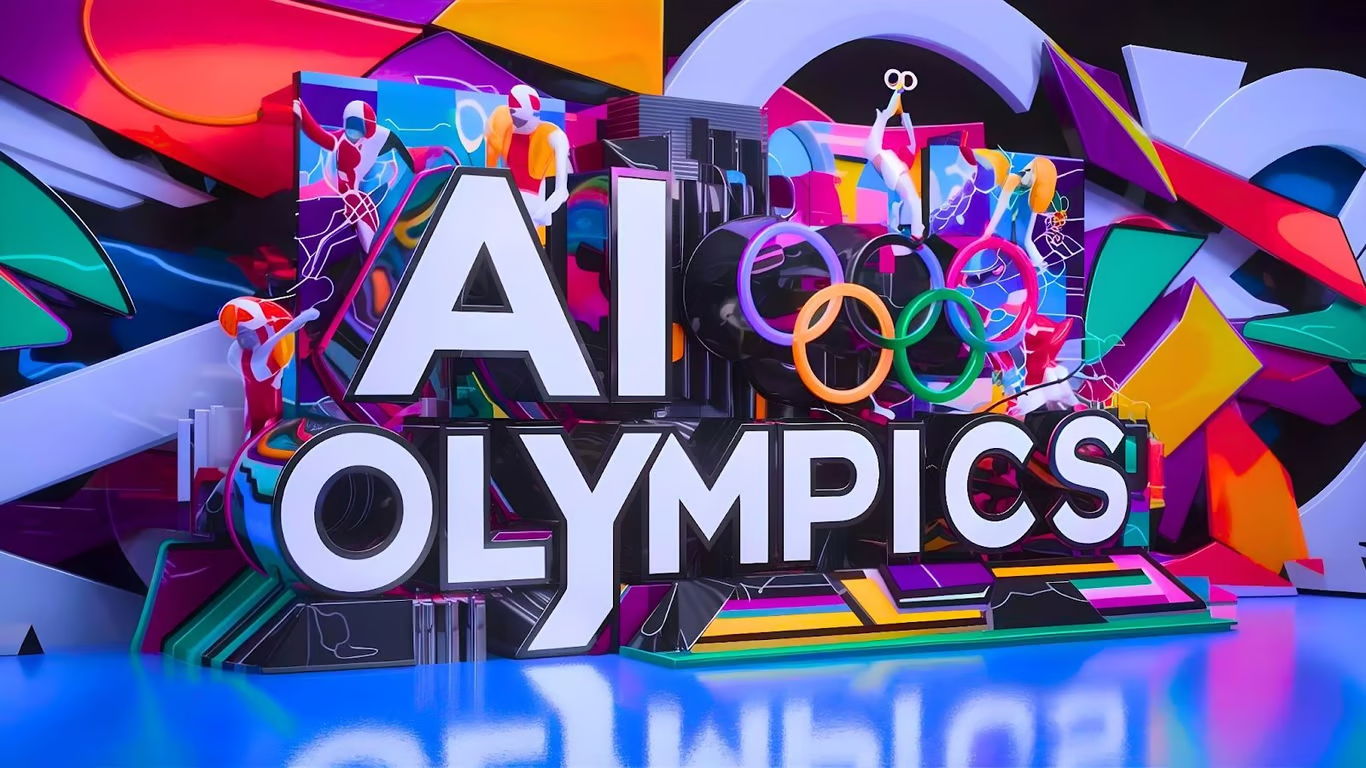In 1964, technology saw a breakthrough in satellite broadcasting, allowing the world to watch the Tokyo Olympics as it unfolded in real time. Fast forward 60 years later, and TV spectators are witnessing yet another major leap in Olympic broadcasting.
This time, China’s technological prowess is on full display at the Paris Olympics, as one of the country’s leading tech companies is deploying cutting-edge artificial intelligence (AI) solutions not only to give sports data analysis and strategies during competition, but also enhance the viewing experience for billions of spectators worldwide.
Chinese e-commerce giant Alibaba Group, a Worldwide Partner of the International Olympic Committee (IOC), has joined forces with the Olympic Broadcasting Services (OBS) to launch the OBS Cloud 3.0 platform, which is supporting over two-thirds of the live broadcast signals from the Games across 54 broadcasters.
Cloud computing has become the main method of remote distribution to media rights holders for the first time in the history of the Olympic Games, taking over from satellite broadcasting, which was launched during the 1964 Olympics in Tokyo, Alibaba Cloud said in a statement.
Both the President of the International Olympic Committee Thomas Bach and Chairman of Alibaba Group Joe Tsai highlighted the transformative impact of Alibaba Cloud’s cutting-edge technology on Olympic broadcasting.

China is leveraging a cloud-based platform to broadcast the 2024 Paris Olympics on an unprecedented scale. This platform is delivering over 11,000 hours of content to more than 200 countries, reaching billions of viewers worldwide. Compared to traditional satellite broadcasting, the cloud system offers greater scalability, flexibility, and cost-efficiency, while also increasing the stability and responsiveness of the global broadcast.
Through the cloud platform’s low latency and high resilience, it has outperformed other distribution methods when it comes to scalability, flexibility, and cost-effectiveness. These technical advantages have been crucial for handling the massive scale of broadcasting the largest sporting event globally.
But Alibaba’s innovations go beyond simply the broadcasting aspect. The company has also deployed its AI-enabled multi-camera replay systems at 14 venues, covering 21 different sports and disciplines including badminton, track and field, and basketball. These systems transform live footage into precise 3D models, allowing for slow-motion replays and giving viewers a more immersive experience.
And the tech giant’s impact on viewer engagement doesn’t stop there.
Their use of AI technology to reconstruct and colorize footage from the 1924 Paris Olympics brings the historic event to life in a new way. Alibaba has also produced a documentary titled To the Greatness of HER, celebrating the achievements of female athletes throughout the Olympic Games.
An AI experience, Wonder Avenue, is also featured at the eastern end of the Avenue des Champs-Elysées. This digital experience allows visitors to immerse themselves in Olympic history and explore cutting-edge AI technologies that can help them get personalized recommendations for shopping, create virtual alter-egos, and walk a fashion show with designs crafted in collaboration with Chinese artists.
Positive responses from netizens on WeChat praised this as an example of Chinese technology going global, with one comment saying “Chinese companies have helped the Olympics with digital transformation and it’s worth being proud of.”
As the world marvels at the athletic feats on display, the 2024 Paris Olympics has also become a stage for China’s technological prowess. With its cutting-edge AI solutions, the country is firmly positioning itself as a global leader in sports innovation and entertainment, redefining the possibilities of how people experience the Games.
Banner image via AI Tools Club. Second image via Alibaba Cloud.


















